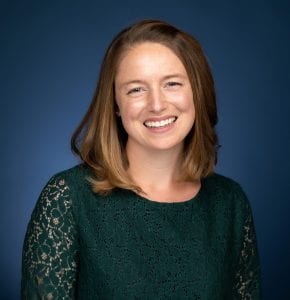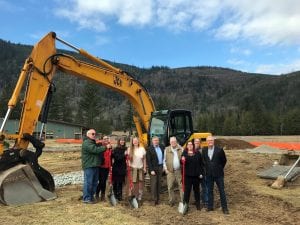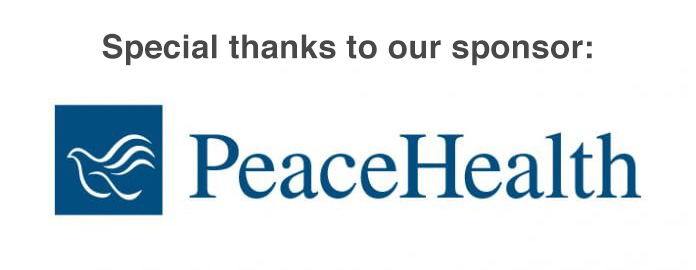For almost 40 years, Chuckanut Health Foundation has worked hard to identify and meet the health care needs in Whatcom County. In that time, it’s given millions of dollars to various local programs and organizations, and worked to foster partnerships and communication among groups that share its goals. I recently spoke with Executive Director Heather Flaherty to better understand how the foundation operates.
The foundation’s initial funding came from the sale of Bellingham’s St. Luke Hospital in 1983. “It was a community-owned hospital, a nonprofit, so the proceeds went into a trust that was designed to support the community in perpetuity,” says Flaherty. “It was one of the first, and now you see many similar foundations across the country.”
Chuckanut Health Foundation operates from a vision statement that sounds simple, but raises complex questions for its board of directors. “Our vision is that every child gets a healthy start, and every person receives the care they need throughout their lifetime. And that’s not just a poster on the wall—everything that we do has to work to achieve that vision,” says Flaherty.

They start by asking what it truly means for people to receive the care they need. “Does that mean the medical system, or do we define that more broadly, including our mental health system?,” Flaherty asks. “Loneliness and isolation are some of the key drivers of health, too, so are we considering building healthy relationships as a form of care?”
With its vision as a starting point, the foundation reviews community needs and sends issues they discover through what they consider a discernment process. “We look at what’s in our toolbox, and how we can effect change. Sometimes that’s funding, sometimes it’s providing advocacy and elevating voices, sometimes it’s supporting policy change, and sometimes it’s raising awareness about an issue,” says Flaherty.

In addition to improving community health, the board is always looking to improve itself, as well, and is always accepting applications. “One of our goals is to diversify the board, and center the lived experience of local people in our work,” Flaherty says. “That means having people who understand what it’s like to navigate barriers in the health system, who have experienced how systemic racism has disadvantaged them. We know that diversity—having different perspectives in the discussion—creates better outcomes.”
At the present time, the foundation’s board has identified four priorities to work on, the first of which is addressed by their Aging Well Whatcom initiative. “We consider that to be a ‘cold spot,’ because we don’t see as much planning for older adults,” says Flaherty. We have a growing senior population and we need to make sure we’re caring for them and have a responsive system in place.”
Flaherty highlights the second priority—healthy children and families—with one example of need. “Before COVID, for every 10 children in need of childcare, there were only four licensed childcare spots. There are a lot of families trying to juggle work and childcare, and we don’t have a system that supports them. We work with local partners to analyze needs and resources, and figure out where strategic investments can be made. We also help build understanding of the support we can get from the Federal, State and County governments, from philanthropy and from our community.”

The third priority involves youth mental health and access to treatment, particularly for those struggling with substance use disorders. “If you’re struggling with addiction, should you be punished for that? You go to jail and have a record, and everything gets harder, which can sometimes drive people right back to their addiction,” says Flaherty. “Investing in prevention efforts and providing treatment and support is much more cost effective and often results in better outcomes.”
Any solution also needs to take into account families. “The wait times to see family counselors can be 8 to 12 weeks, which might not sound like a lot, but if you’re in that moment of crisis and you are ready to say yes to counseling, an eight- or 12-week barrier is going to be a challenge.”
Their fourth priority involves achieving health equity. “Looking across the social determinants of health like housing, clean air, food and income, how do we make sure people have the same chances and choices for being healthy, and having good health outcomes?” asks Flaherty. “We’re building a Racial Equity Commision with Whatcom County, making sure that the experiences and the voices of our marginalized community members are prioritized because the people closest to the issues also have the solutions, and we want to invest in those community-owned solutions.”

Those four priorities represent a lot of hard work, and they are only a few of the projects and programs underway, so Chuckanut Health Foundation is grateful for the network of support that surrounds them. “It’s all about finding good teammates. There’s this old adage that I love that says ‘hire hard, manage easy,’” Flaherty says. “It’s really about finding the people who are aligned with your vision, tapping into their potential and talent, and fostering and investing in community leadership.”
On a personal level, when your job is to go looking for trouble and to learn about the problems people face, it’s possible to get overwhelmed. “I do tell people sometimes not to invite me to their party, because I can certainly share some sobering stories,” says Flaherty. “On the flip side, one of our core values is optimism. When we come together as a community, nothing is impossible. We have had some great successes working in partnership with our community, and we focus on building on those.”










































